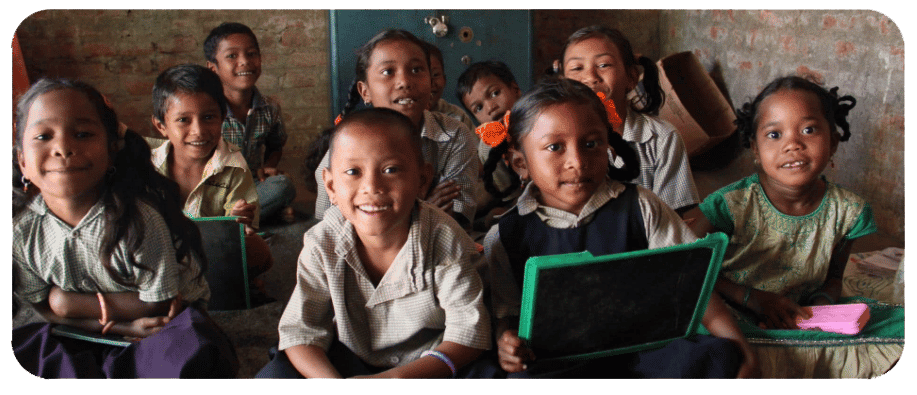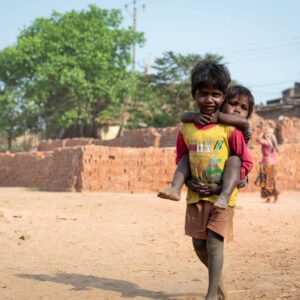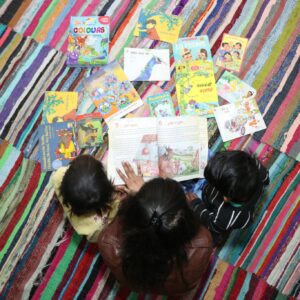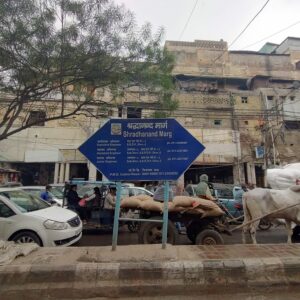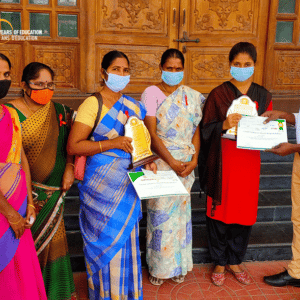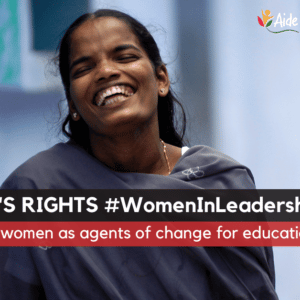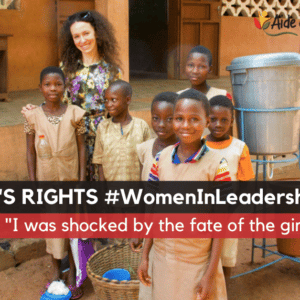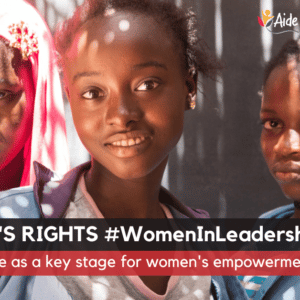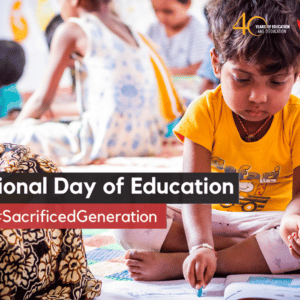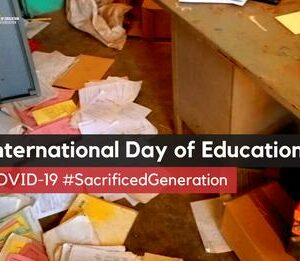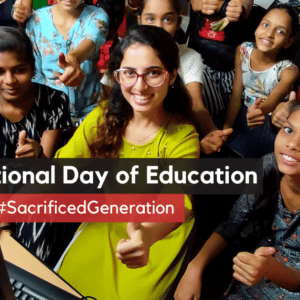Elected “woman of the year” for Indian magazine, The Week in 2014, Rukmini Rao is a key activist for women’s rights in India. She joined Aide et Action’s Board of Directors in 2011, and leads her very own flagship program “the Gramya Resource Center for Women”, which we are very proud to support. To mark International Women’s Day 2020, we sat down with Rukmini to learn more our work and motivation.
Aide et Action: What is the Gramya Resource Center?
The Gramya Resource Center was created in 1993 to promote women’s rights and Rights of the Girl Child. One of our programs was to provide education to child labourers through residential schooling. We accommodated around 100 young girls, aged 9-14 years, from the Lambadi community, an indigenous community largely frowned upon by Indian society and victims of development displacement. Their parents are economically marginalized, sometimes alcoholics, and cannot afford to take care of their children. To survive, they migrate to neighbouring regions in search of work for three or four months each year. The families live in difficult conditions sometimes sleeping on the ground within cattle sheds. These are not good conditions for these children who also miss school. So, the parents entrust their children to us and come back to see them for the holidays. In addition to the boarding school, we carry out awareness and care activities with children from 0-14 years old in 15 villages. With Aide et Action, we also introduced children to sponsorship. This is an opportunity to create open dialogues with these young people on the situation of women/gender, to explain what a democratic society is, to go towards more equality/more justice. All these activities are carried out by volunteers: two men and 14 women, several who also suffered the horrors of discrimination against womenand based on caste system.
Aide et Action: Where did you get the idea for such a program?
In 1997, a friend and I received an anonymous phone call to let us know that two baby girls (twins) were about to be killed and many baby girls were missing in the Chandampet area, approximately 100 Kms from Hyderabad city. We immediately intervened and were able to save two babies as young as nine days old. We immediately asked for an investigation from the government and it found that murders of baby girls were very common and known to everyone in the region.
Aide et Action: How did you fight against such discrimination?
To protect young girls, we felt that giving them access to education was the only solution. We therefore called upon the government to reopen all the schools that were largely dysfunctional in the region. We, ourselves, set up classes in the evening. We also created mothers’ committees in a dozen villages at the start in order to make the women stronger and more independent. It was not easy at first because the women themselves refused this kind of initiative. But, mentalities have changed: today girls are no longer married before the age of 18, compared to 12 years ago when our initiatives were strengthened, and they are no longer forced to work. Of course, not everything is rosy. Today, there is a glaring lack of girls compared to boys (sex ratio of children below six for 1000 boys only 834 girls survive). In spite of this, there is a demand for dowry from girls’ families on marriage. Having a daughter is therefore not of much interest to parents, let alone sending her to school. Women and wives are often punished, abused by their in-laws, especially if they do not get pregnant quickly or give birth to daughters. The psychological impact on all these women is terrible and we need to work with them to build their confidence and challenge gender stereotypes. My goal and the goal of our organization is gender equality and justice for all. Of course these are very long-term goals and there is still much work to be done.


